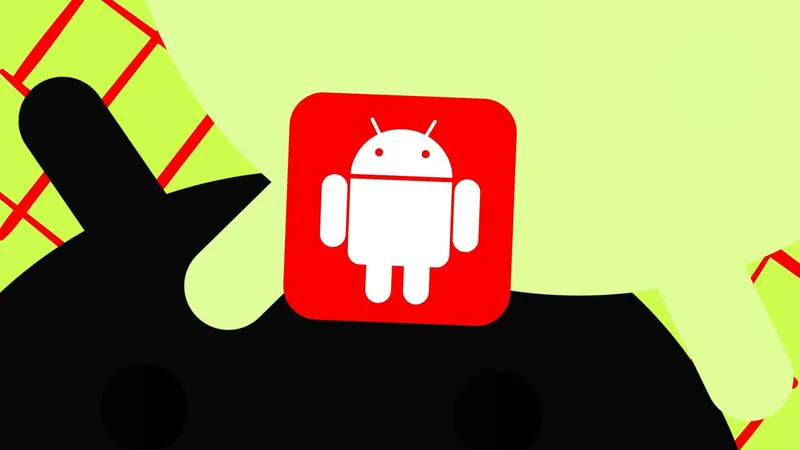
Google's Bold Move: Android's Beloved Sideloading Feature is History!
2025-09-02
Author: Wei
The End of an Era for Android Users?
In a groundbreaking announcement, Google is set to tighten its grip on sideloading, a feature that has long differentiated Android from iOS. For years, Android users have basked in the freedom to install apps from third-party sources, but that’s about to change.
What Exactly is Happening?
Google is implementing a new developer verification process, mirroring Apple's stringent security measures. This shift comes on the heels of increasing malicious software threats, with Google’s VP Suzanne Frey stating, "We've seen how malicious actors hide behind anonymity to harm users. Our analysis revealed a staggering 50 times more malware from internet-sideloaded sources compared to apps on Google Play."
Enter Developer Verification!
Starting next year, this developer verification will apply to all certified Android devices. Sideloading will still be possible, but users will only be able to install apps if they come from developers who are digitally signed. If a developer misbehaves, their apps will be rendered inactive. Essentially, no signature means no sideloading.
Goodbye to Some Fan-Favorite Apps!
This change spells trouble for popular sideloaded apps, such as Revanced, which lets users enjoy YouTube Premium features without the price tag. It’s a major blow to the community of Android enthusiasts who celebrated the ability to customize their devices.
User Reactions: Mixed Feelings!
Many Android users are divided. Some are apathetic, feeling that few of them sideload apps regularly, while others are voicing their frustration on platforms like Reddit. Comments suggest a genuine sense of loss for the unique flexibility that Android once offered. Ironically, while it may enhance security, this move narrows the space between Android and iOS — a situation many users might find alarming.
Looking Ahead: What Does This Mean for Developers?
While this change could streamline app distribution for legitimate developers, it may hinder innovation and exploration for enthusiasts looking to push the boundaries of what Android can do. Projects like LineageOS and GrapheneOS might benefit, yet the average user may not feel the impact.
Conclusion: A New Chapter in Mobile Technology!
As Google shifts gears, the mobile landscape is undoubtedly changing. It may be the end of a distinctive era for Android, but with every change comes new possibilities. Will users embrace this new landscape, or long for the days of unrestricted sideloading? Only time will tell!





 Brasil (PT)
Brasil (PT)
 Canada (EN)
Canada (EN)
 Chile (ES)
Chile (ES)
 Česko (CS)
Česko (CS)
 대한민국 (KO)
대한민국 (KO)
 España (ES)
España (ES)
 France (FR)
France (FR)
 Hong Kong (EN)
Hong Kong (EN)
 Italia (IT)
Italia (IT)
 日本 (JA)
日本 (JA)
 Magyarország (HU)
Magyarország (HU)
 Norge (NO)
Norge (NO)
 Polska (PL)
Polska (PL)
 Schweiz (DE)
Schweiz (DE)
 Singapore (EN)
Singapore (EN)
 Sverige (SV)
Sverige (SV)
 Suomi (FI)
Suomi (FI)
 Türkiye (TR)
Türkiye (TR)
 الإمارات العربية المتحدة (AR)
الإمارات العربية المتحدة (AR)